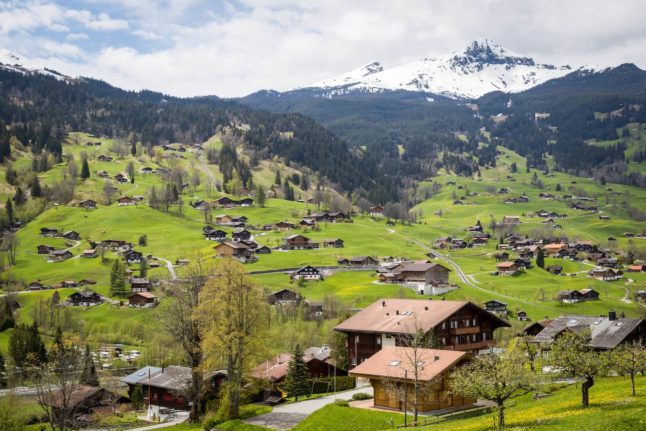Head to your Gemeinde
The fastest way to feel at home away from home and make sure you don’t miss out on key events is to get to know your immediate surroundings. In Switzerland, your municipality is your best bet if you want to find out the who’s who and what’s what in your area.
Feel free to arm yourself with a notebook and ask your Gemeinde to provide you with a list of your municipality’s societies, associations, sports, and social clubs, as well as events you can join and partake. Some city administrations will be kind enough to include important information on neighbouring municipalities too.
Join a Verein
The Swiss are known to be reserved, quiet people who nurture early childhood friendships for life. While sweet, this can make finding friends in Switzerland a challenge for new arrivals – but it needn’t be so hard. One great way of befriending locals and feel more part of Swiss everyday life is to sign up to so-called Vereins (clubs) which are frequented by the Swiss on the regular. The good thing?
You can pick any one interest you have, be it an orchestra Verein, a Vespa Verein or even a Verein for new parents, and foster your language skills by discussing topics you have a keen interest in with like-minded people.
You can find a list of clubs here.
Use Swiss-backed apps to plan your day
Living in Switzerland means the great outdoors are always just a stone’s throw away, but despite the many – and carefully planned – hiking trails, it is prudent you stay safe even in a country renowned for its safety. One app the Swiss love to rely on for safety outdoors is SwissAlert. The app not only lets you know of any weather and natural disasters in your area, but it will also inform you of their consequences as well as other important changes (such as disruptions to public transport).
Those looking to make the most out of their everyday life should also download the Swiss Post App to check post office opening times, track a parcel’s whereabouts and check if there’s anything waiting for you in the mail. Other handy apps are the SBB app to keep on top of any train information, and search.ch which acts as a phone book, weather forecast, map, and TV guide all in one.
Explore local favourites
Whether you’ve asked your local municipality, a Swiss friend or simply googled a few local tips, start to get to know your new home by exploring the best your town has to offer to make you feel that bit more positive about your relocation.
In Basel, the Hotel Drei Könige is rumoured to serve the city’s finest breakfast while you can enjoy the best coffee and croissants combo at the young Kult bakery at Riehentorstrasse 18 and Elsässerstrasse 43. In the evenings, crowds gather by the Rhine for drinks, food, and a merry time.
Those living in Zurich are well advised to grab a coffee at Café Boy. The modern café is a local favourite for a reason: its produce and meat are regionally sourced and always fresh. In wintertime, locals also love to spend time at one of the city’s top three saunas: Stadtbad Zürich, City Hallenbad, or Seebad Enge.
If you fancy yourself a quick bite in Lausanne, locals swear by the food trucks stationed at Place de la Riponne. For those not in the mood for international dishes, the Café de l’Eveché near the city’s cathedral offers classic Swiss cuisine such as rösti and fondue.
Meanwhile, Geneva’s Eaux-Vives is arguably the best area to wind down after a long day’s work with ample food and drink options right by the lake. Another insider tip perfect for a Friday night date is the Café Marius which serves outstanding organic wine coupled with a great atmosphere.
Getting around
If you’re looking to save money, time, and make the most of your life in Switzerland, it is essential you get well acquainted with the SBB CFF FFS, Switzerland’s railway company. Lucky for you, Switzerland’s SBB is recognised as one of Europe’s chief train operators and connects around 2,600 stations and stops across the country – making getting around a breeze!
With SBB CFF FFS, you can pay for “Sparbillette” – or so-called Supersaver tickets – and benefit from an up to 70 percent discount on the standard ticket price. Travellers can choose from one-way tickets to day passes but will be limited to a few select routes and times. The trick is to book as early as possible to snag the best deal.
For frequent travellers, SBB’s GA Travelcard at an annual cost of 3,860 francs for adults is your most cost-effective option by a landslide. The travelcard allows you to travel on public transport throughout Switzerland for “free” and you can even get 5 francs off on short-term bike rentals at 20 SBB stations.
If you don’t want to hand over quite that much money, a great way of reducing your transport cost is to purchase SBB’s Half Fare Travelcard. The travelcard costs 120 francs per year and gives you an up to 50 percent discount on all travel by train, bus, boat, and most mountain railways.



 Please whitelist us to continue reading.
Please whitelist us to continue reading.
Member comments